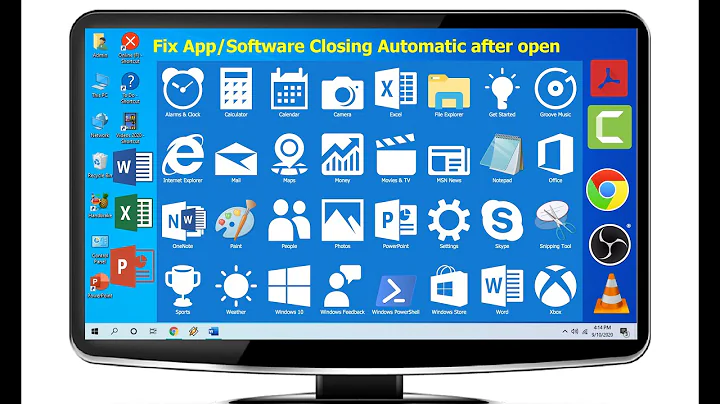Launch program in screen after reboot
Solution 1
You can use cron to do this for you.
- Simply do
crontab -ein terminal
- It will open in your selected editor, where you can type
@reboot <your command>
(make sure you give full path for all executables) - Save the file and exit
Ref: http://manpages.ubuntu.com/manpages/precise/en/man5/crontab.5.html
Solution 2
The official way to do this is by creating init scripts. These scripts have a start, stop, restart and status command and can be configured to run these commands at specific times. So when you switch to leven 6 (reboot) it will stop the service before rebooting and if configured correctly it will automaticly run start on this script when switching to runlevel 3. You can find these scripts in /etc/init.d. If you create the file correctly (so it must be able to handle a start and a stop parameter) you can run update-rc.d script.sh defaults to set it to automaticly boot. Make sure you did chmod +x on the script first to make it executable. The folder /etc/init.d contains loads of examples of how this is done.
There is also the /etc/rc.local file, this file runs after the system has fully booted, and you can just add your own commands.
Personally I prefer the init.d scripts because you can make sure that the program closes gracefully, thus preventing possible dataloss or other errors. But for one command, or somethhing that can't really break /etc/rc.local will do just fine.
Solution 3
Modify your script in such a way that it can be invoked as an init script or, better yet, an upstart job. With some luck, you can keep it pretty much as it is, and have it run at boot by simply adding an upstart configuration to /etc/init. (Take any small .conf file there as a template.)
Two things you'll need to be aware of:
-
Your script is invoked with root privileges. Drop them, so that your script runs with the appropriate user privileges (your user identity, in this case). Do this by invoking the final screen command in your script using
susu -c "screen ..." - username. When started at boot, your script is run without a controlling terminal, whereas you currently run it from a shell. Since you use
screenI assume you wish to re-attach to the terminal runningscripton your next login. If so, this may require passing extra options when you invokescreen.
Solution 4
I have this in script to start rtorrent in a screen at boot time:
#!/bin/sh
case $1 in
start)
su - johan -c "screen -dm rtorrent"
;;
stop)
killall rtorrent
killall screen
;;
esac
exit 0
You can combine this with Vishnus answer if you prefer crontab, <your command> = screen -dm /usr/home/"script".
Related videos on Youtube
user142219
Updated on September 18, 2022Comments
-
user142219 over 1 year
I am running several headless Ubuntu 12.04 boxes. My typical usage involves logging into each machine via a putty session and executing a script using screen.
After logging in via putty, I execute the following from the command line:
screen /home/user/"script"My question is:
Is there any way to get my script/program to run automatically after a reboot? I'm trying to prevent a loss of productivity in a power loss/automatic reboot situation.
-
McNisse about 11 yearsNote the comment, in the link, that all needed services might not be available when the cron daemon starts.
-
Vishnu Kumar about 11 yearsI also agree with this,
update-rc.dwill let you setup initscripts for various runlevels. manpages.ubuntu.com/manpages/precise/en/man8/update-rc.d.8.html -
RParker about 9 yearsI'm not sure exactly when this broke, but in my experience,
screenis not immediately available in Ubuntu 14.04 (and newer?). So, you might need to make it@reboot sleep 5; <your command>or something. I haven't played around with the exact timing, though. -
Josip Rodin over 8 yearsThere are other considerations with using Upstart, such as the /var/run/screen directory, please see unix.stackexchange.com/a/165647/103306




![[SOLVED] Flutter startup splash screen page black screen problem | Launch Screen Bug #FlutterShip 2](https://i.ytimg.com/vi/yG4zjNvAeWQ/hq720.jpg?sqp=-oaymwEcCNAFEJQDSFXyq4qpAw4IARUAAIhCGAFwAcABBg==&rs=AOn4CLD-P5cJ8LkC7N1bFECNHkqhKqqf0A)